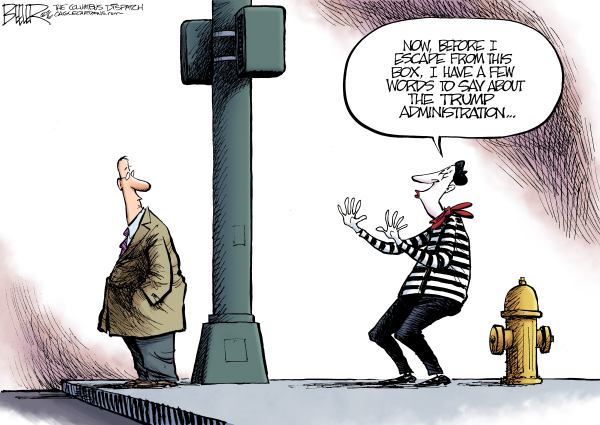
When the country was in a tizzy over Alar (a pesticide) on apples, congress scurried to hold hearings. Agribusiness experts, agriculturalists, botanists, horticulturalists, physicians, an EPAer or two, chemists would all seem to be categories of helpful witnesses. Nay, nay.
Congress had Meryl Streep testify. Why? Well, because she is a mother who had strong feelings about the apples her kids eat.
Alar was pulled from the market. Thank goodness! Ms. Streep saved us from the dangers we faced if we drank 4,000 gallons of apple juice every day for the rest of our lives.
If we are concerned about farm foreclosures and the future of agriculture, who are you going to call? Jessica Lange. Because she played a farmer's wife in "Country," a movie about the tragedy of farm failures and foreclosure. Congress did not solve the farm problem. However, Willie Nelson started "Farm Aid," and, along with the Farm Credit System, agriland survived.
Actors cannot resist a cause, whether good or pure folly. Presently, emotions in this post-election season that still feels like an election run so high that actors are skipping congress and going straight to the executive branch. So, if the vice president-elect has the temerity to go to "Hamilton," the cast springs into action to give this guy a good talking-to.
An eloquent impassioned plea from the heart might have been tolerable, but a lecture read via cell-phone cue card looked like the silly tantrum that it was. Brandon Dixon, the actor who plays Aaron Burr and did the honors of reading the text from Lin-Manuel Miranda (the play's creator), is riding high on the accolades of a fawning media.
There is the "time and place' issue. Sports are beyond my ken, but the kneeling-football-player thing is equally silly. We love you actors and athletes for your talent; we are not there for your views. I would not subject you to my amateur attempts at rapping or hurling a football should you come to one of my lectures.
Here's one key to effective "conversations," as those on the left refer to monologues read with the support of a booing audience. Bring along at least a facade of knowledge. For example, to Mr. Miranda, here's a correction for your texted scrip for Mr. Pence. The Declaration of Independence refers to "unalienable rights," not "inalienable rights.
There is a difference, and it is critical.
A look-see at our founding documents affords some insights that those you lecture already have. Mr. Miranda may be talented in many ways, but the script, intended as the shot heard round the media, was the work of a rank-amateur when it comes to history and political theory.
This knowledge deficit makes the whole event ironic. Do the actors who stood so defiantly on the stage have an idea about the man they are lionizing with their lines? For example, do they realize that Mr. Hamilton was a banker? The "Hamilton" cast fawned over Mrs. Clinton when she attended the play.
Of course, Mrs. Clinton railed about those rascally bankers, but she was not above taking a shekel here and there from them. Neither was Hamilton. You can't found a newspaper without capital.
Indeed, perhaps the cast should understand that they star in a play about a man who was a capitalist and a conservative. Pick up The Federalist. That project, consisting of analyses by Hamilton, James Madison, and John Jay of the U.S. Constitution, will send you to your cell phones to create lectures for Hamilton. Indisputably, Hamilton wrote 56 of the 85 papers, and he claimed authorship of others, but historians differ.
There are all sorts of goodies on the powers of the Executive branch, and here's a quote to consider before ambushing a newly elected official, "The natural cure for an ill administration, in a popular or representative constitution, is a change of men." Federalist 21. For the glass-ceiling crowd, I am quite sure Mr. Hamilton meant "men" in its anthropomorphic sense. I am even more sure that he understood that elections have consequences, and that we have elections so that citizens can change who governs them. We just did that. No stage tirade can change that.
Voting brings us to one final critical point. There is a moral authority issue. Before protesting an election: Vote. Reports indicate (Radaronline.com) that the cast members are not found of their franchise rights. Mr. Dixon did not vote in 2012. Seth Stewart (Thomas Jefferson) voted in 2008, but not 2012. Anthony Ramos Martinez (plays son of Hamilton) registered in 2012, but did not vote. Some have never voted. Some cast members are not even registered.
Therein lies the solution to their professed fears. Lectures in the theater are not the solution to the cast's concerns. Voting is. Know thy audience. Never assume. More importantly, know thy subject matter.
Marianne M. Jennings is a professor of legal and ethical studies at Arizona State University. She has been a JWR columnists since 1999.


 Contact The Editor
Contact The Editor
 Articles By This Author
Articles By This Author